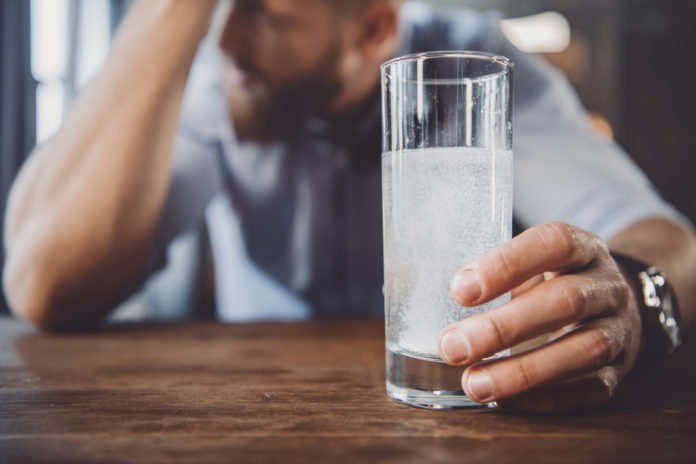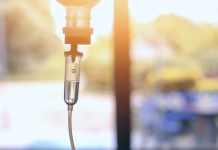Why Do We Get Hangovers?
Hangovers are cascaded by alcohol metabolism and the repercussions of one too many drinks.
Alcohol metabolism predominantly occurs in the liver, where enzymes break down the ethanol in alcohol into acetaldehyde, which is 10 to 30 times more toxic than alcohol itself.
The liver is only efficient at metabolizing about one drink per hour, meaning if drinking more frequently than that, not all of the acetaldehyde gets broken down. The overflowing acetaldehyde is subsequently released into the blood stream, starts to wreak havoc on the body, and results to the major symptoms of a hangover.
Furthermore, alcohol’s attack on the immune system can cause nausea, headache, and fatigue, while its diuretic properties causes those extra trips to the bathroom and is often indicated by thirst, dizziness, lightheadedness, and that pounding headache.
Alcohol with extra congeners, the byproducts of fermentation in some alcohols, can also aggravate hangover symptoms. Greater contents of congeners are found in red wine and dark liquors, while white wine and light liquors contain fewer of the byproduct.
There are additional risk factors that increase hangover length and severity, including genetics, gender, and age.
Why Do Hangovers Get Worse with Age?
That two-day hangover is a consequence of the natural aging process and the responsibilities that tend to come with adulthood, including the following:
Enzyme Decline
This is thought to be caused by declining supplies of alcohol dehydrogenase, the enzyme involved in metabolizing alcohol.
Weight Changes
As the body ages, muscle mass is often displaced with fat. Bodies carrying more fat tend to be slower at metabolizing acetaldehyde, in turn exacerbating hangover symptoms.
Medication Interference
As we age, there is a greater likelihood of being prescribed to more medications and supplements, which may interfere with the metabolism of alcohol.
Always consult with your primary care provider or pharmacist to safeguard such risks if prescribed to a medication or supplement.
Increased Responsibility
Pat your back on this one! One hypothesis of why hangovers get worse with age relates to being more responsible.
Think about it: Rather than heading to those college parties eight days of the week, you are likely taking care of family or working more hours. This plummet in drinking patterns from a regular party attendee to a once-a-month (if not less) socialite can reduce your tolerance to alcohol.
Drinking as We Age
With celebrations not stopping with age, you do not have to hang up your party hat just yet. There are ways to reduce the risk of or prevent a hangover.
Go for Less
Obviously, the less you drink, the less likely you are to have a hangover. Also decide ahead of time how many drinks you will enjoy, stick to your plan, and do not succumb to any peer pressure!
Take It Slow
Rather than slugging down beers, drink slowly to compensate for the change in body composition. As a general rule of thumb, have only one alcoholic drink per hour.
Choose Carefully
Although any sort of alcohol can cause a hangover, beverages with fewer congeners are slightly less likely to cause hangovers than beverages with greater contents.
Drink Water Throughout
Drinking a full glass of water after each alcoholic drink can help you stay hydrated and may even discourage you to drink more alcohol. Water can also help dilute alcohol and lower the risk of quick spikes in blood alcohol levels.
Eat Before and While Drinking
Alcohol is absorbed more quickly if the stomach is empty, so eat something before and during drinking. Fat-laden foods also take longer to digest and can help slow down the absorption process of alcohol. But do not use this as a green light to overindulge on a double bacon cheeseburger… Go for foods with healthy fats, including salmon or sirloin steak paired with antioxidant-packed veggies.
Manage that Hangover
If the night and drink count got ahead of you, don’t fret! While time is the only cure for a hangover, these natural remedies can ease your symptoms and help you carry on with #adulting.









